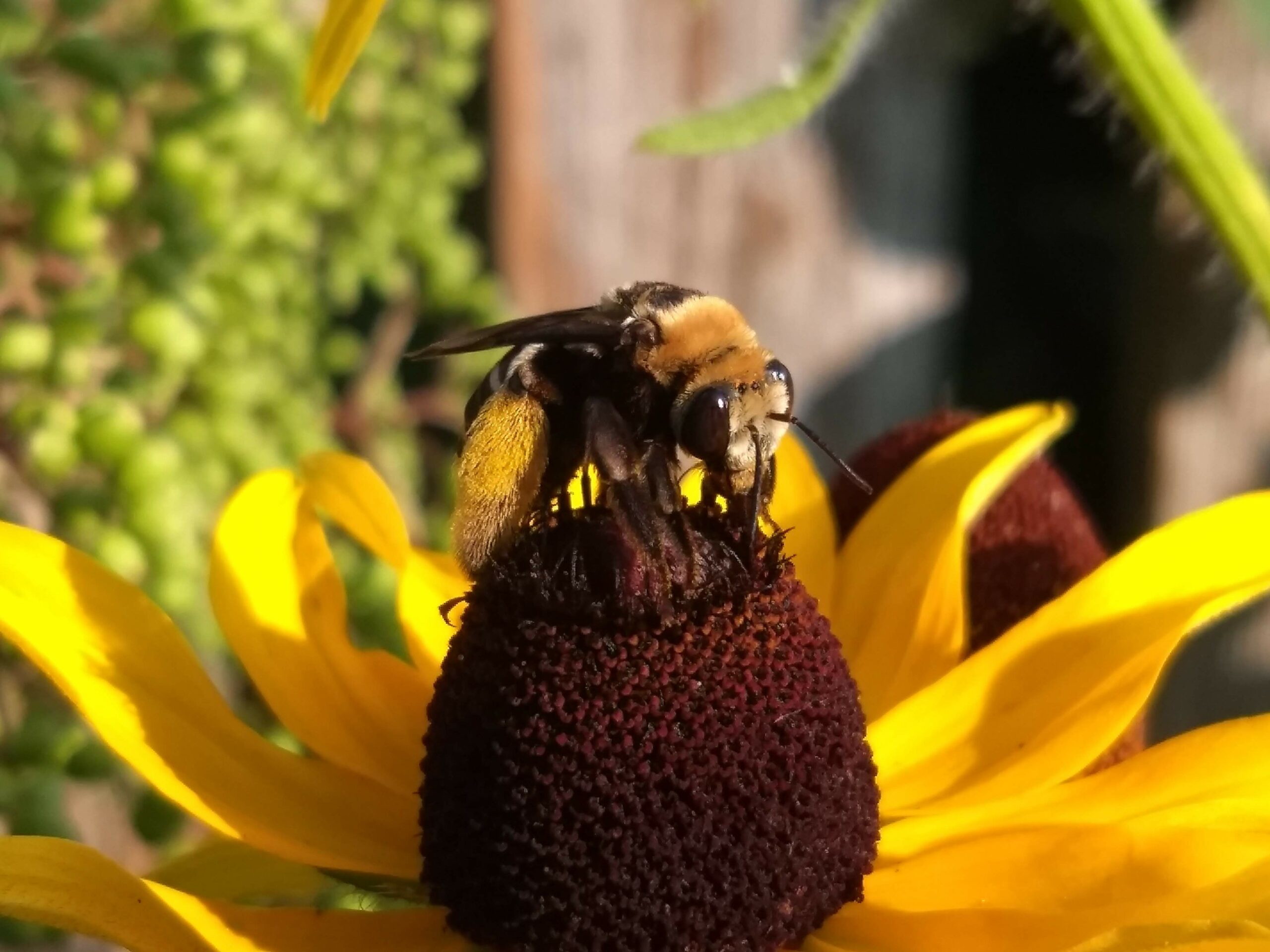Total eclipse will be brief ‘buzzkill’ for bees

JACKSON, Mo. — University of Missouri Extension specialists have the buzz on how the April 8 solar eclipse will stop bee activity for a few minutes in parts of Missouri.
MU Extension agronomist and beekeeper Travis Harper says the upcoming eclipse offers a buzzworthy opportunity to learn about solar eclipses and apiculture – the science of bees.
MU Extension specialist Anthony Ohmes says he is looking forward to experiencing the eclipse where he works as an agronomist in southeastern Missouri. Some of this area will undergo totality, when the moon completely covers the sun, causing darkness.
NASA estimates this year’s totality will last about four minutes, a minute longer than the 2017 eclipse. The 2024 eclipse path will run in a swath from southwestern Mexico northeast to Canada, including parts of south-central and southeastern Missouri.
Harper, who works with military veterans in MU’s Heroes to Hives program, says new research from MU affirms what beekeepers see daily. Bees work tirelessly from sunup to sundown to make honey. Sunshine serves as their time clock and only dark clouds and storms signal that it is break time.
In 2017, MU researchers and citizen scientists set up tiny acoustic microphones near flowers to listen in on bees during the eclipse. Bees were active and noisy, even when the light dimmed, until the moment of totality. Bees then went silent abruptly, almost frozen in time.
Citizen scientists who helped with the project anticipated that bee activity would slow as light dimmed during the eclipse until the point of totality. Instead, they found that bees continued to fly until totality and only then did they stop completely.
Candace Galen, lead researcher on the study, published results of the study in a report by the Entomological Society of America. Smithsonian magazine highlighted the work in “Busy Bees Take a Break During Total Solar Eclipses.”
MU Extension horticulturist Tamra Reall is a trained entomologist known as “Dr. Bug.” She says the upcoming totality is a great opportunity to learn more about insects. “Our understanding of how insects react to total solar eclipses is still evolving,” Reall said in a press release.
Honeybees are not alone in their confusion about how to respond to this change. “Researchers have a lot to learn about the reasons behind these behaviors and how other pollinators, like native bees, butterflies, moths and hummingbirds, respond to these unusual celestial events,” she says.
Reall encourages the public to become citizen scientists and help NASA researchers in the Eclipse Soundscapes Project. Learn more at https://eclipsesoundscapes.org/roles.
You can also learn more about the eclipse from NASA at https://science.nasa.gov/eclipses. The website includes an interactive map showing the path and timeline that the eclipse will follow and tips for safe viewing.
Miss Clipping Out Stories to Save for Later?
Click the Purchase Story button below to order a print of this story. We will print it for you on matte photo paper to keep forever.

